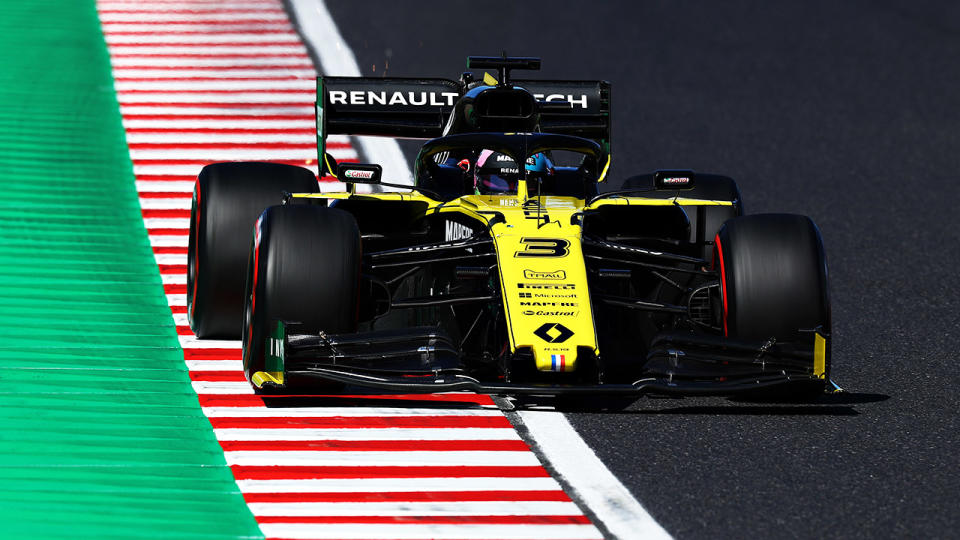Brutal act of betrayal in Daniel Ricciardo disqualification drama
FIA documents have revealed it was a former Renault employee who sparked the investigation and subsequent disqualification of Daniel Ricciardo and Niko Hulkenberg from the Japanese Grand Prix.
Renault drivers Ricciardo and Hulkenberg were disqualified from the results on Wednesday after the sport's governing body ruled they had benefited from an illegal driver aid.
Ricciardo and Hulkenberg were classified sixth and 10th at the October 13 race in Suzuka, but the Racing Point team protested the brake bias system used by the French manufacturer.
Renault had scored nine points in Japan to consolidate fifth place in the constructors' standings but they have now lost those points.

However, the governing FIA said in a statement before the Mexican Grand Prix that Renault had until Thursday to appeal the decision.
The Suzuka stewards had concluded after a telephone hearing that while the brake bias system "used innovative solutions to exploit certain ambiguities", it did not breach the technical regulations.
The system was, however, not allowed as a driver aid.
"The brake balance adjustment system in question acts as a driver aid, by saving the driver from having to make a number of adjustments during a lap," an FIA statement detailing the stewards' decision read.
[Join or create a 2019 Yahoo Fantasy Basketball league for free today]
Dobbed in by former employee
According to Autosport, FIA documents revealed the suggestions had originally been made by an ex-Renault employee.
Renault's docked points would give Racing Point an additional five as Sergio Perez and Lance Stroll are both promoted two positions.
It also would add three points to Toro Rosso's total for the year thanks to gains for Pierre Gasly and Daniil Kvyat.
Racing Point argued the system was a breach of Article 27.1 of F1's sporting regulations, which demand a driver drives the car alone and unaided.

The team also felt Renault had breached Articles 11.1.3, 11.1.4 and 8.6.3 of the technical regulations that outlaw powered devices that alter brake balance, or any system not controlled by the driver.
Renault insisted that its brake bias adjustment system did not use a lap-distance trigger, and was within the technical regulations.
It offered full details of the system to the FIA, but this has been kept confidential and has not been revealed to the public.
The impact of Renault's disqualification
The revised results put Renault under pressure from Toro Rosso for fifth in the constructors' championship.
It also moves Racing Point driver Sergio Perez from 11th to ninth, above both Renault drivers, in the drivers' contest.
Ricciardo and Hulkenberg slip to 12th and 13th, falling back behind McLaren's Lando Norris and the Toro Rosso of Daniil Kvyat as well.
Mercedes' constructors' title victory also remains confirmed - by one point - despite Charles Leclerc being promoted to sixth and gaining an extra two points for the Ferrari team.
Leclerc's bonus points reduce Ferrari's deficit to 177 points, with only 176 available over the remaining four grands prix.
It also boosts his advantage in third place in the drivers' championship to 11 points over Max Verstappen and Sebastian Vettel.
with AAP and Autosport
